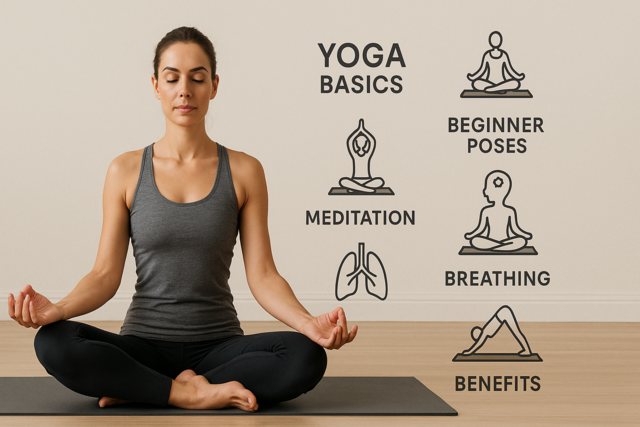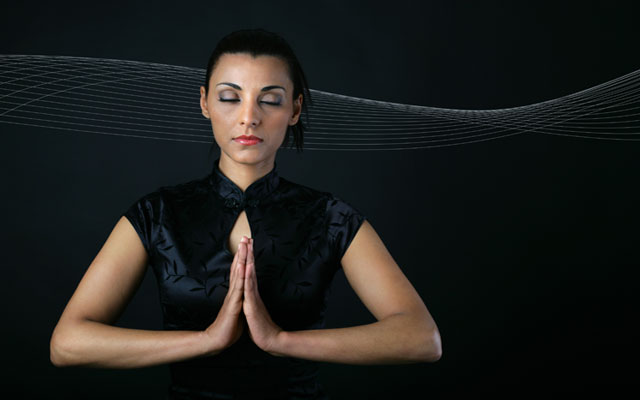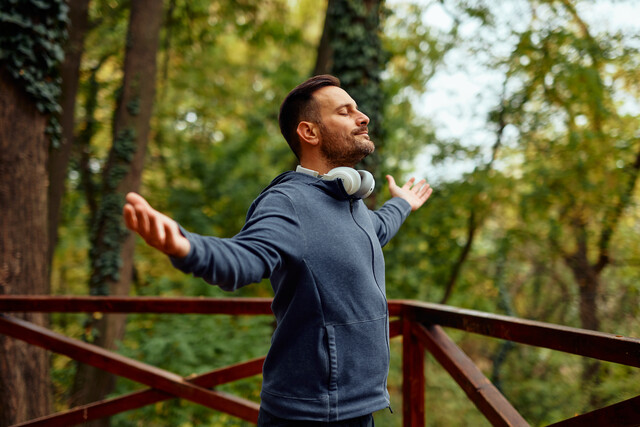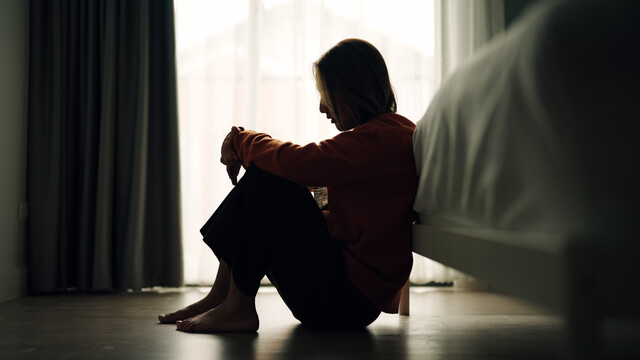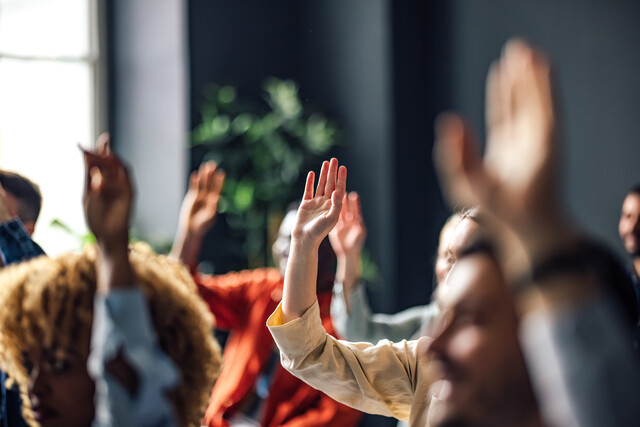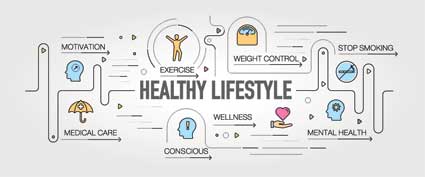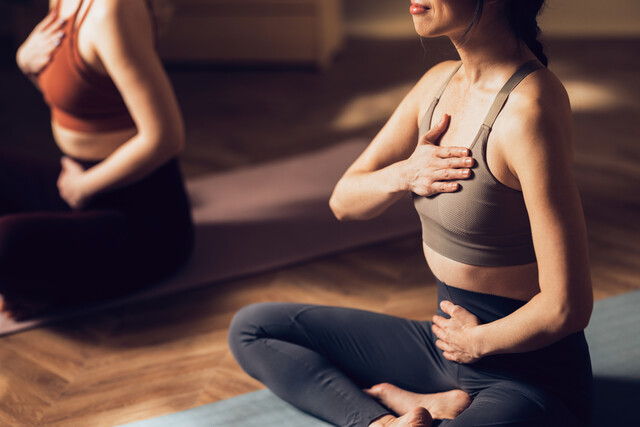Controlling your breathing is directly related to controlling your thoughts and emotions.
Have you ever felt like you had emotional or physical responses that were outside of your control?
Try to remember one of those occasions. Maybe you had to give a speech, go on stage, or heard a strange noise in an empty house.
How did your body respond to it? Try to remember your breath response. Did you start breathing faster, irregularly, or even hyperventilating?
In situations like those, it is more likely that your breathing is in control of your responses, and not the opposite.
Having control over your breathing pattern will help you, not only in situations that involve nervousness or fear, but also in your day-to-day dynamics and decisions.
When you are in control of your breathing and your own emotional and physical state, you do not require any external validation: you are exactly what and who you are, and no one can take that self-nature away. You are connected with your humanness at its most intimate level.
Unlike many miraculous services you see advertised everyday, promising to improve your life, breathing costs absolutely nothing (yet, at least). You do it at all times, at all places. The important thing is to train yourself, and to know yourself in order to do it well and use as an improvement tool.
| Let's take a look at some of the benefits from having control over your breathing: |
Stopping, breathing, and being at peace with yourself. Though this seems to be a very simple benefit, how many people do you know (including yourself!) that don't ever take time for themselves? So this is number one: Spend some time and become best friends with who you really are.
Energizing! It is proven that taking a break up to 40 minutes during your day will increase your energy and productivity. In fact, several companies worldwide are giving their employees a mid-afternoon break. It started originally as a "nap break," and though it showed mostly positive results, some people felt drowsy and slow for the remainder of their shift. What many companies are doing now, is exchanging that for a focused break � when employees can take time to re-energize themselves in a quiet environment. This is a great opportunity for you to take that time to focus on your breathing. Breathing exercises will keep you aware and relaxed at the same time, and will allow you to renew your energies at any time during the morning, afternoon, or evening.
Indirect Weight Loss: Really? Yes. You most likely won't lose weight by controlling your breathing, but it is undeniable that controlled, conscious breathing helps you achieve the correct mindset to do it. Once you feel in control of your breathing, you consequentially feel more in control of yourself. Once people feel that they are more connected to who they are, habits may change drastically: They eat less fast food, they exercise more. Why? Let's think about this: If controlled breathing helps you get in touch with your true self, it only makes sense that by taking control of your own body and mind, you will be able to make choices that better reflect who you want to be, and that usually includes a healthy lifestyle.
Learn to focus on one thing at a time. This one is so simple that we often forget it. If you focus fully on what you are doing at a given moment, whatever it is, you will do it better than if your focus is divided and scattered. This applies to anything and everything: work, sports, arts, relationships, and whatever else you can think of.
Develop your intuition. When you take time to readjust your breathing, you are both teaching and learning. You are teaching yourself about who you are and who you want to be, and you are learning to always be that person. The more you breathe naturally, the more accurate, and the closer you will be, to hearing what your feelings are trying to tell you.
These are just a few of the literally hundreds of benefits controlled breathing can bring you! As we have seen, the art of breathing can improve your life directly and indirectly: It helps you improve your habits, which in turn, gives your lifestyle a spin for the better. Some other benefits can include:
|
? Improved self-confidence |
Controlling your breathing has a lot to do with self-knowledge, willpower, and one-pointedness (focusing on one, and one thing only).
Think of a person, or more than one, whom you consider "successful." Now try to think about what they do, exactly, that makes them successful, or how they achieve it. Most people who have succeeded in their areas have a great understanding of what one-pointedness means. Whether they know it or not is a whole different story, but in spite of all distractions, they are able to focus on a single point, and achieve amazing things in relation to that point.
| Here is an ancient story about one-pointedness:
Traditionally, the mind has been compared to a bow and arrow. The thoughts can be seen as the arrows, and the mind can be thought of as the bow. The tension of the mind is like being an archer. In the Mahabharata, and in India -- since the bow and arrow was for so long the warrior's weapon of choice (for their long-range work) -- they all learned to be archers. The young warrior Arjuna was being taught archery by Dronacharya, who was teaching archery to all the young boys of this particular large family. So they went out into the forest, and put targets up on the trees. They were doing advanced training, seeing if they could hit the target. And this one large target, in the shape of a big bird, was put up in a distant tree. Drona then asked the various archery students: -- Arjuna, what do you see? To which Arjuna replied:
-- I see the eye of the bird. And Drona knew, from that moment, that Arjuna was his best student. He only saw the eye of the bird. The bull's eye. The center of the target. |
Breathing and Emotional Health
Your emotional health should be, first and foremost, controlled by -- well, you. It's yours. "Easier said than done," you are probably thinking.
You are right.
Making who you are and who you want to be become the same person is a very hard thing to do, but with controlled breathing and a powerful exercise, which we will teach here, you will be in good hands � your own.
- Think of your mind as a suitcase, a huge one. One that we don't even know exactly the size, or how much it can hold. But we know it's a lot.
- Every single day we are bombarded with millions of bits of information. From the moment we wake up until the moment we go to sleep, we receive information in ways that we can see, hear, touch, and feel.
All of this is stored somewhere in our minds, this big suitcase -- things we don't even realize we keep in there. On top of all that information, there are other bits of information we have stored throughout our lives that dictate the way we go about things.
Breath control can help us keep our cool amid this truly overwhelmingamount of stimuli to which we are exposed every day of our lives.
How?
|
Our relationship with our breathing is a very interesting one. Breathing, at the same time:
- Is you |
How can all these things coexist? That is the beauty of the Art of Breathing.
Whether we control our breathing or not, we will breathe, and we willreact to things we experience. But by having as much directedness, intention, and control over your breathing as you can, your emotions will be closer to who you really are, and consequently, your reactions willaccurately reflect your emotions and thoughts.
Controlled breathing � Truthful Emotions and Thoughts � Truthful Reactions
? What does my family expect of me?
? What do my friends expect of me?
We want to please everyone. We are continually enslaved by trying to please others � by trying to fit in. We want our bosses and employees to be happy; our parents and children to be happy; our brothers and sisters and our friends to be happy. There's nothing wrong with that, but we can't forget about our own happiness.
In the process, we forget who we are, and end up spending no time at all with the person we spend the most time with: ourselves. In forgetting who we are, not only our thoughts and emotions are determined by others: Our breathing, too, gets into a routine that adapts only to the needs of those around us. We breathe in an efficient way to please someone else, or in a constricted way to get a job done quicker, or in an uncomfortable way because we feel trapped. There is a reason Descartes did not say, "You think, therefore I am."
"I think, therefore I am."
In the modern, busy days in which we live, we turn our bodies and minds � and also breathing � into mirrors: They reflect what we thinkothers want to see. We are conditioned to behave in a particular way.
We fall into behavior patterns, almost addictions, in a way:
- "I can't think of myself not getting irritated at work."
- "I can't imagine not being exhausted to the point of being anti-social at the end of the day."
- "I won't ever again have a full night of restful sleep."
We establish deep-rooted patterns. These patterns affect our breathing in very negative ways.
One way of looking at these external patterns is that they are desires in the wrong place. By not listening to our own expectations, we are placing our actions farther and farther from the true self.
How do we fix this? Being in control of your breathing will help.
You breathe, therefore you are!
By taking a step back and becoming fully conscious and aware of theself, becoming aware of the me � here and now, we are starting to breathe from, and to, ourselves: We are contemplating our own friendship with ourselves and with the world.
Start breathing slowly, through your belly. Feel your ribs moving out as you breathe in.
Now, remember this one rule:
1. The only person who can validate you is yourself.
Understanding this very important point will liberate you from all external dependencies. Being with yourself and totally happy with your being is a goal and an ultimate benefit you can achieve by breathing freely.
|
Take some time, possibly before going to sleep, to do this exercise daily.
- Relax. Find a quiet, peaceful, and comfortable space. You may benefit from lying down while doing this. -Establish a slow breathing pattern; breathing calmly and flowingly through your belly.
- Now, every time you breathe in, imagine the air entering your body is good energy. Think of something positive you want to bring into your life, or something you may need at that moment, that day, that week. Maybe something you feel you have been lacking a little. Breathe in, and feel that energy filling every part, nerve, cell of your body. For example, every time you breathe in, imagine you are breathing in kindness, or compassion, or optimism. You choose. - Don't rush: take the full breath of positive energy; allow it to enter your body. - Now, when you breathe out, picture your body getting rid of negative energy. Negative energy doesn't exist on its own -- it needs a body and a mind to live in. Therefore, don't worry about giving this bad energy out there to the world � you won't. As soon as it leaves the body, it doesn't exist anymore. So just send it out. - Again, you can picture just negative energy in general, or one particular thing you want to get rid of. For example, every time you breath out, tell yourself you are expelling rudeness, or selfishness, orpessimism. You choose. |
Important Tip: If you are having a hard time imagining positive energy entering your body and negative energy leaving your body, or want to try something different, it can be very helpful to assign them colors. For example, think of positive energy as the color yellow. Imagine, as you breath in, the yellow air spreading through your body -- your fingers, hands, arms, shoulders, neck, head, back, legs, feet, toes. You can chose one part of your body at a time to fill with positive energy each time you breath in! The same with negative energy: Assign it a color, and imagine that energy around your body. Perhaps you feel particularly stressed or heavy in a certain part of your body, and you will sense this. As you breath out, visualize the color leaving your body, and repeat as many times as you feel may be needed to get rid of that negative energy.
When you're done, your body will be showered and filled with a bright, positive energy; you will feel relaxed, peaceful, and recharged!


